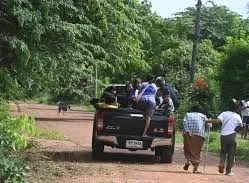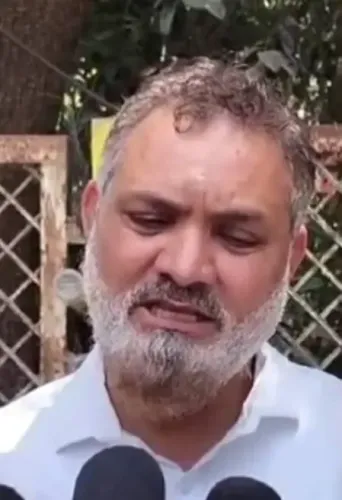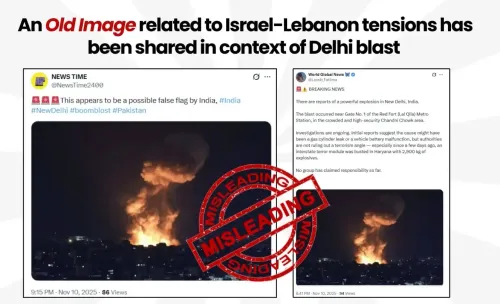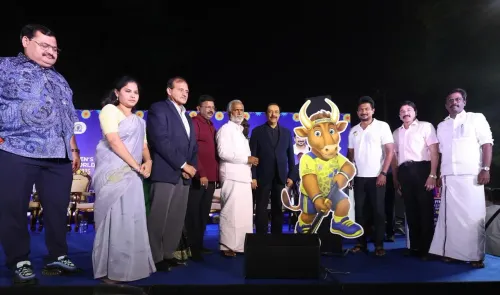What Should Indian Tourists Know About the Travel Advisory Issued by the Indian Embassy in Thailand?

Synopsis
Key Takeaways
- Travel Advisory: Stay updated through official sources.
- Risk Areas: Avoid certain provinces due to unrest.
- Casualties: Recent military clashes have resulted in fatalities.
- Official Guidance: Follow recommendations from the Tourism Authority of Thailand.
- International Response: Calls for restraint and dialogue have been made by global leaders.
Bangkok, July 25 (NationPress) In light of the rising tensions at the Thailand-Cambodia border, the Indian Embassy in Thailand has released a travel advisory urging Indian travelers to exercise caution and stay informed through official Thai channels, particularly the Tourism Authority of Thailand (TAT) newsroom.
"Considering the current situation near the Thailand-Cambodia border, all Indian tourists are advised to monitor updates from Thai official sources, including the TAT Newsroom. The Tourism Authority of Thailand has indicated that travel to certain locations listed in the provided link is discouraged," the Embassy of India in Thailand stated on X.
Due to persistent unrest along the Thai-Cambodian border, the Tourism Authority of Thailand has informed that several tourist sites across seven provinces—Ubon Ratchathani, Surin, Sisaket, Buriram, Sa Kaeo, Chanthaburi, and Trat—are currently not advisable for visitation.
Recent military confrontations have resulted in the deaths of fourteen Thai individuals, with another 46 sustaining injuries, as reported by the deputy spokesperson of the Ministry of Public Health.
As of Thursday evening, no information on casualties from Cambodia had been released, according to reports from the Xinhua news agency.
In Bangkok, Public Health Minister Somsak Thepsuthin confirmed that the casualties included 13 civilians and one soldier, alongside 46 injuries. He condemned the actions described as attacks on civilians and a hospital by Cambodia: "We call on the Cambodian government to immediately cease these war criminal actions and adhere to the principles of peaceful coexistence."
The violence was triggered by a landmine explosion on Wednesday that injured five Thai soldiers, leading to the expulsion of ambassadors from both nations and a significant diplomatic fallout.
Thai authorities accused Cambodia of deploying new Russian-made mines, while Cambodia refuted these claims as "baseless accusations", attributing them to leftover ordnance from previous conflicts.
On Thursday, clashes erupted in at least six areas along the border, including near the historic Ta Muen Thom temple. In response to what the government claimed were Cambodian truck-mounted rockets, Thai F-16 fighter jets conducted airstrikes.
"It was an act of self-defense," stated Nikorndej Balankura, spokesperson for the Thai Foreign Ministry.
The situation intensified following skirmishes that began Thursday morning, with both parties accusing each other of breaching international law.
Cambodian Prime Minister Hun Manet has called for an urgent UN Security Council meeting to address the escalating conflict.
Cambodia's Defense Ministry contended that the airstrikes targeted an area near Preah Vihear, a UNESCO World Heritage site, and vowed to pursue legal action.
"The temple was designated as a World Heritage site by UNESCO... and represents a 'historical legacy of the Cambodian people'," stated the Cambodia’s Culture Ministry.
Lieutenant General Maly Socheata, spokesperson for the Defense Ministry, asserted that Cambodia had "no option but to defend its territory against Thai threats," emphasizing that the attacks were aimed solely at military installations.
The conflict has garnered immediate international concern. United Nations Secretary-General Antonio Guterres has urged both nations "to exercise maximum restraint and resolve their differences through dialogue," according to UN deputy spokesperson Farhan Haq.









